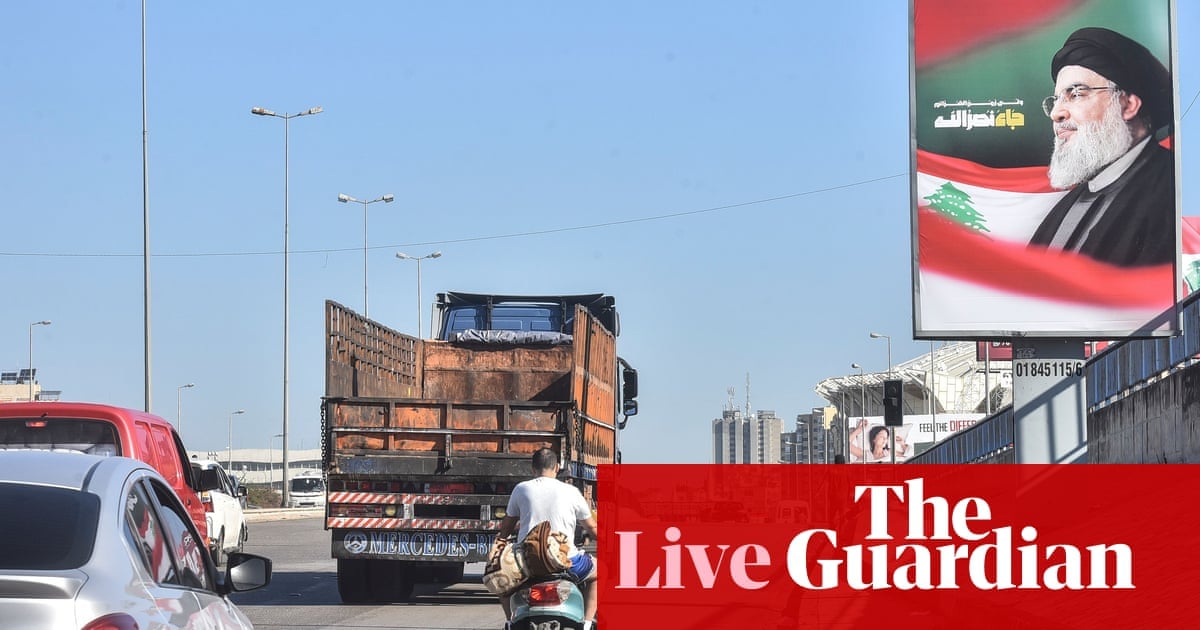Benjamin Netanyahu has warned Lebanese people that they could face “destruction and suffering” like the Palestinians in Gaza if they don’t “free” the country from Hezbollah.
“You have an opportunity to save Lebanon before it falls into the abyss of a long war that will lead to destruction and suffering like we see in Gaza,” the Israeli prime minister said in a video address directed to the people of Lebanon.
“I say to you, the people of Lebanon: Free your country from Hezbollah so that this war can end.”



Biden: “Israel has every right to extend its borders as biblically dictated…”
I actually thought this was something he really said for a second.
yep, it was said.
“We should prepare to go over to the offensive. Our aim is to smash Lebanon, Trans-Jordan, and Syria. The weak point is Lebanon, for the Moslem regime is artificial and easy for us to undermine. We shall establish a Christian state there, and then we will smash the Arab Legion, eliminate Trans-Jordan; Syria will fall to us. We then bomb and move on and take Port Said, Alexandria and Sinai.” David Ben-Gurion May 1948
On the 6th of February 1948, during a Mapai Party Council, Ben-Gurion responded to a remark from a member of the audience that “we have no land there” [in the hills and mountains west of Jerusalem] by saying: “The war will give us the land. The concepts of “ours” and “not ours” are peace concepts, only, and in war they lose their whole meaning” (Ben-Gurion, War Diary, Vol. 1, entry dated 6 February 1948. p.211)
The acceptance of partition does not commit us to renounce Transjordan. One does not demand from anybody to give up his vision. We shall accept a state in the boundaries fixed today — but the boundaries of Zionist aspirations are the concerns of the Jewish people and no external factor will be able to limit them.” P. 53, “The Birth of Israel, 1987” Simha Flapan
Biblically or bibi-vocally?